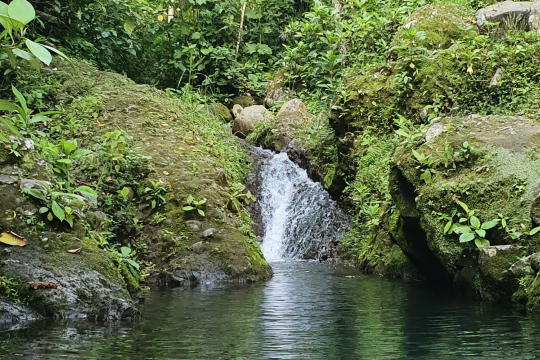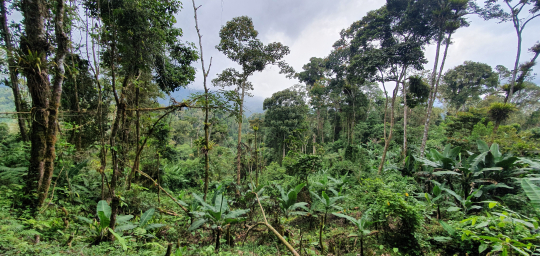EfD Central America researchers worked with the National Forestry Financing Fund (Fonafifo) to analyze the impact of the Payment for Ecosystem Services (PES) programs implemented since the 90s on the quality and quantity of water and how to make it more effective in the future.
In 1997 Costa Rica began implementing the Forestry Law Nº7575, introducing the PES program. It generated a cascade of changes and actions to protect the country's forests and environment. Government institutions, forest owners, and financing entities have all participated in the process.
Bárbara Viguera, EfD Central America researcher, has since 2022 worked evaluating the effectiveness of the PES programs and the possible impact, positive or negative, on water resources; however, this was a complex task because it requires quantifying and monitoring ecosystem services flows.
"Building a system that verifies effectiveness in a simple and relatively low-cost way would contribute to making PES schemes accountable and a more solid policy tool," said Bárbara Viguera.
Today, the PES scheme is still running and is identified as one of the instruments or actions that have helped Costa Rica reduce deforestation and instead increase the forest cover to approximately 54% of the country's territory.
Also, she said that the PES scheme has changed over the years and today is more of a social instrument.
"The PES program has contributed to raising awareness and fostering pro-environmental behavior in Costa Rica society, to value standing forests, and to improving some socioeconomic indicators such as poverty reduction in isolated or vulnerable areas."
Provides recommendations for improvements
The evaluation findings were shared in the article Alternatives for Improving Payment for Ecosystem Services (PES) Effectiveness on Water Resources published in the Journal of Soil and Water Conservation last January.
As coauthors appear Bárbara Viguera, Róger Madrigal-Ballestero, and Eduardo Pacay, three EfD researchers, along with Gilmar Navarrete Chacón, Director of Environmental Services of the national PES authority, Fonafifo.
"This article proposes some result-oriented alternatives to improve the effectiveness of Costa Rica's PES and facilitates its assessment, emphasizing the effect of PES interventions on water resources," explained Bárbara Viguera.
Among the recommendations shared by the researchers to Fonafifo to improve the PES resources allocation and accountability in Costa Rica were the inclusion of a concrete definition of targeted ES and measurable goals, the diversification of activities and land uses to payments, the inclusion of hydrological criteria for zoning, and the identification of beneficiaries.
Bárbara Viguera said that one of the following steps for Fonafifo is to work with other governmental entities to evaluate the suggested modifications.
Strengthen decision-making capacities
Also, EfD researchers trained the technical staff of Fonafifo at the end of 2022. The aim was to strengthen the staff's capacities in using a modeling tool that improves the allocation of funds to maximize water resources and update the knowledge on water dynamics related to farms, forests, and landscapes. More information about this training can be found on EfD Central Americas web notes: Modeling tool can improve funding allocation for ecosystem services.
The link to the paper is available at EfD's Website: Alternatives for Improving Payment for Ecosystem Services (PES) effectiveness on water resources
Written by: Marianela Argüello L.

